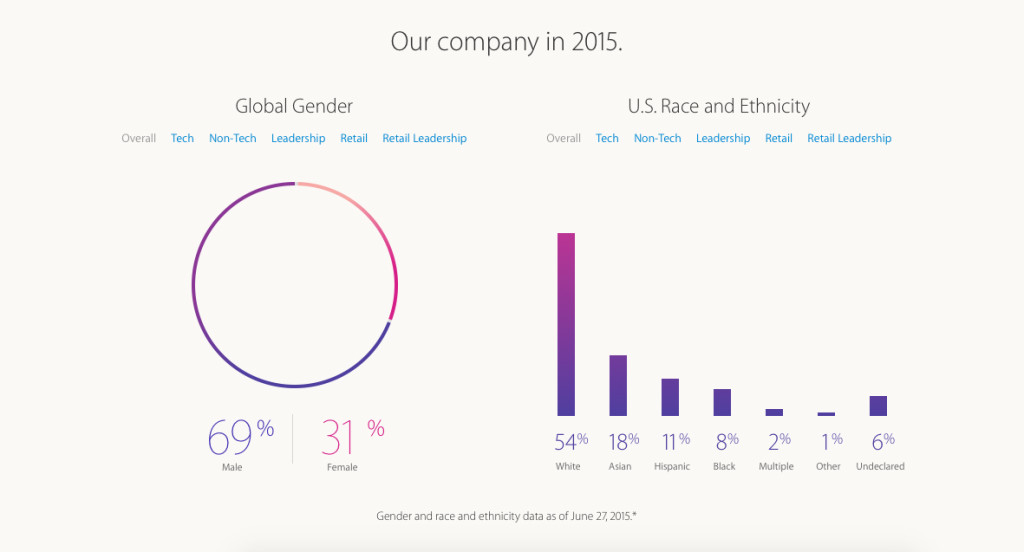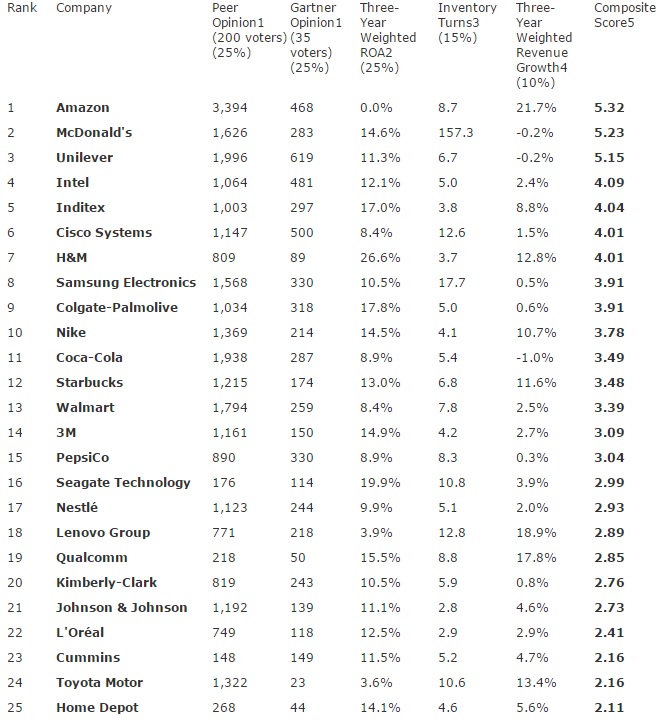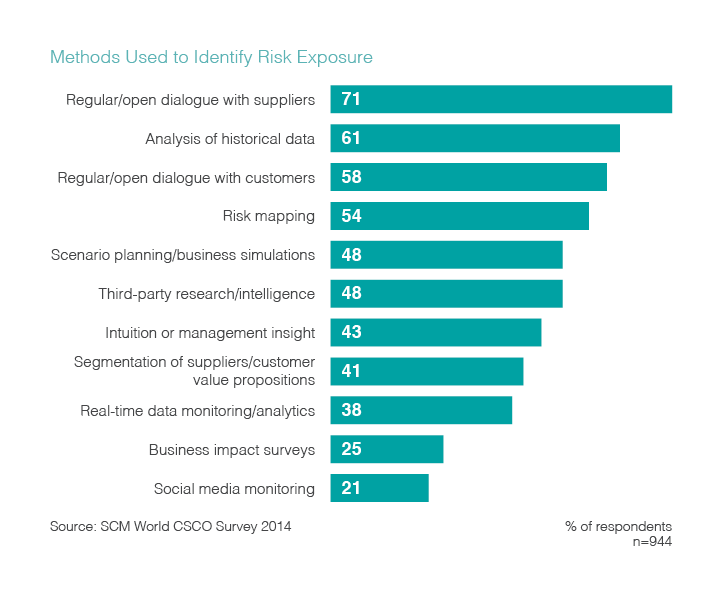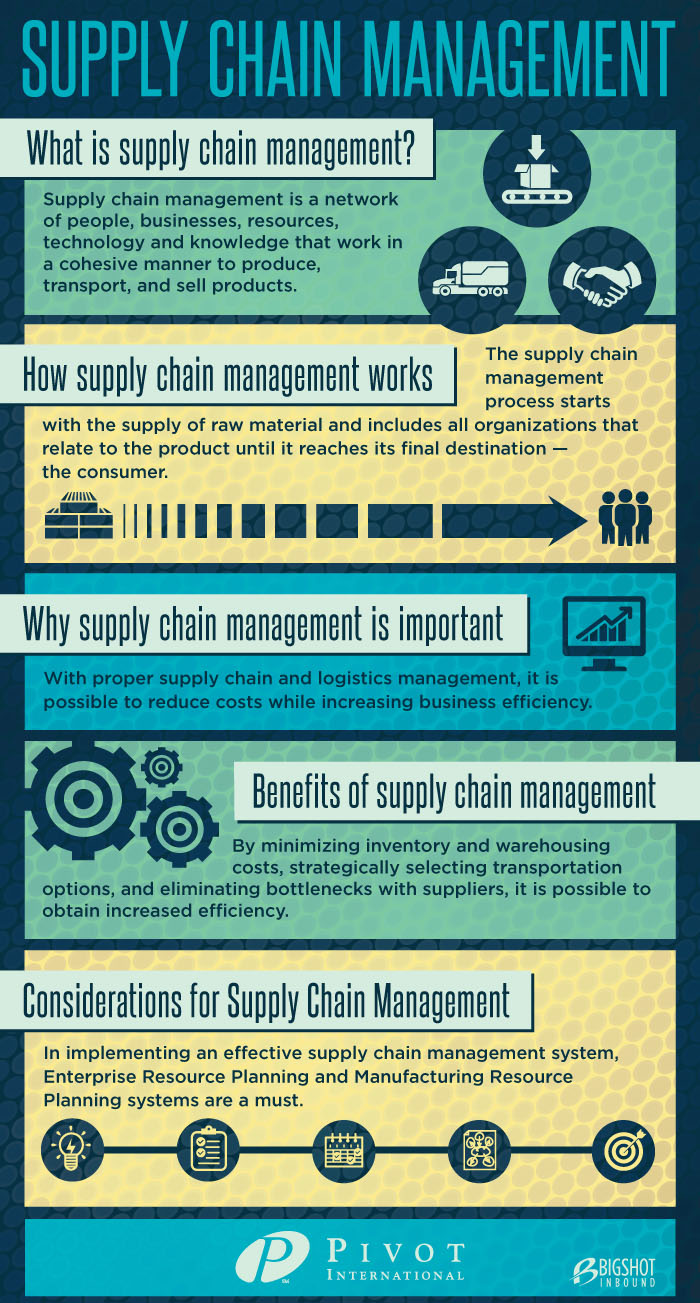
- The hazards of go-to people
For the staffers who are not the go-to people, things often don’t work out too well either. They can end up in a self-reinforcing cycle of unhappiness and poor performance. When they realize that they are not one of the go-to people they might miss out on the opportunities to work on exciting or important things, since they are not considered dedicated and capable.
http://www.cio.com/article/2973120/leadership-management/the-hazards-of-go-to-people.html#tk.rss_all
- Target’s Big Issue: Modernizing Its Supply Chain
From September, Mulligan will be overseeing a reorganization of Target’s supply chain system. CEO Cornell described the present system as “an incredibly complex supply chain, built to serve an outdated linear model in which product flows from vendors through distribution centers to stores.” Now what is needed is a new structure that goods can flow in multiple directions as orders are made, including orders from customers for store pick-up or home delivery. The outmoded way is costing Target money and time, neither cheap commodities.
http://seekingalpha.com/article/3458396-targets-big-issue-modernizing-its-supply-chain
- Amazon sounds like a hellish place to work (the complete saga):
Oh, and if you have any shred of a personal life or bodily ailment, Amazon is probably not the best place to work. The Times notes several disturbing cases wherein employees have been criticized for scaling back their hours to take care of sick and dying family members or small children. A woman who had thyroid cancer was given a low performance rating after she returned, while another woman suffering from breast cancer was put on a “performance improvement plan” because her personal “difficulties” had interfered with fulfilling her work goals.
http://gizmodo.com/working-for-amazon-sounds-utterly-soul-crushing-1724325816
To add more (from the NYT):Amazon employees are held accountable for a staggering array of metrics, a process that unfolds in what can be anxiety-provoking sessions called business reviews, held weekly or monthly among various teams. A day or two before the meetings, employees receive printouts, sometimes up to 50 or 60 pages long, several workers said. At the reviews, employees are cold-called and pop-quizzed on any one of those thousands of numbers.
http://www.nytimes.com/2015/08/16/technology/inside-amazon-wrestling-big-ideas-in-a-bruising-workplace.html?smid=tw-share&_r=1
And now, the NYT backs off (seriously?)In addition, the evidence against Amazon, while powerful, is largely anecdotal, not data-driven. And anecdotes can be used and interpreted in any number of ways. A reader, Len Edgerly of Cambridge, Mass., wrote to object to parts of the article, particularly a story from Mr. Bezos’ childhood in which he tries to make his grandmother quit smoking by blurting out precisely how many years of her life she had already lost, causing her to burst into tears.
- Monitor Financial Distress in Your Supply Chain
Manufacturers should prioritize, understand, and address troubled supplier situations with advance awareness. That’s why companies should continually analyze their contracts to maximize leverage, and understand available legal options. To alleviate the pressures of financial distress, manufacturers should exercise common law and statutory remedies in order to purposefully tweak standard terms and conditions of new contracts (or negotiate changes to existing contracts). The terms of these contracts significantly impact the manufacturer’s ability to re-source production to a healthier supplier, recover tooling, and utilize certain remedies.
http://www.natlawreview.com/article/monitor-financial-distress-your-supply-chain
- The 4 Levels of Organizational Alignment
No matter how SMART goals are, they’re irrelevant if they aren’t actively communicated. This is a top-down process, meaning employers need to play an active role in communicating the company vision. Whether it’s through company-wide newsletters or calendars, weekly meetings or goal-management software, keep employees up to date on progress toward goals.
- 8 Team-Building Mistakes Richard Branson Would Never Make
During an Entrepreneur blog post, Branson said, “You need to give your people the freedom to get creative, to come up with their own ideas and run with them. If someone comes to you with an idea for a business, why not ask that person to launch a startup? Over the years some of our employees’ ideas have resulted in our setting up businesses. This has helped us to enter new markets and, more often than not, succeed. Your company should act as a springboard for ambitious employees, not a set of shackles.”









